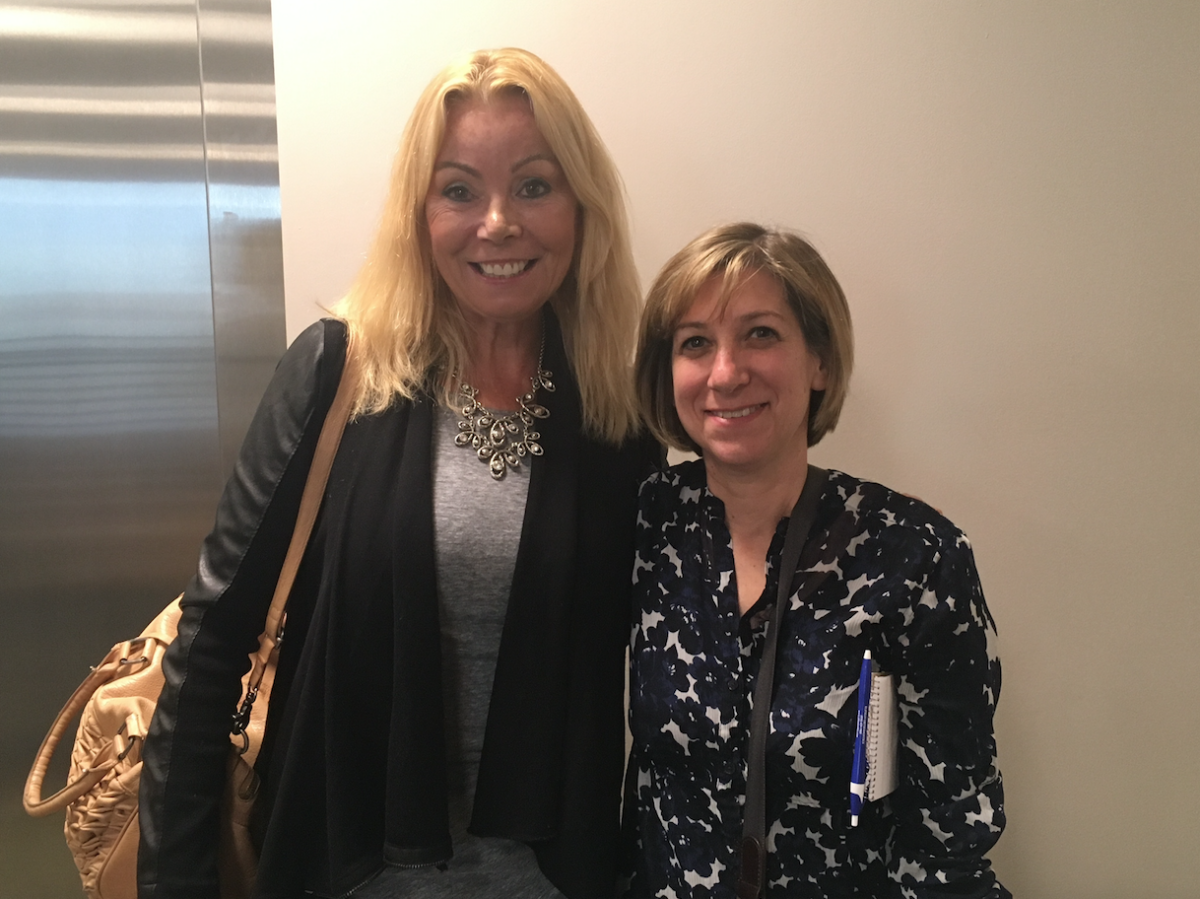This past Monday in George Anastasia’s crime reporting class, students got a first hand account of what it takes to bring down a force full of corrupt cops.
Journalists Wendy Ruderman and Barbara Laker, who won a 2010 Pulitzer Prize for investigative reporting, were there to talk to the class about their book “Busted,” which drew heavily from their experience writing the “Tainted Justice” series for the Philadelphia Daily News. Students in class had been reading “Busted” as a part of their curriculum in the class.
“You see something that’s wrong and you want to bring light to it, and you hope that that light and that heat brings change. I think every journalist really wants to do that if they’re working on an investigative story.” -Wendy ruderman
For Dylann Cohn-Emery, a junior journalism major in the crime reporting class, it was cool to hear from the authors of the book. She thought it really helped to provide extra depth to the class material.
“It was really interesting getting the actual take on what the authors thought,” Cohn-Emery said. “Usually you just read the book, [but] we got their perspective and other stories of them out in the field, so it was definitely interesting.”
While writing the articles for the paper that would later net them a Pulitzer, Ruderman and Laker talked to Benny Martinez, a former drug informant, whose interviews tipped them off to a much bigger story. As they began to dig deeper into their reporting, the two uncovered a series of falsified drug busts, instances of narcotics officers robbing bodegas, and perhaps most troubling, an officer on the force who was accused by multiple women of sexually assaulting them during drug raids.
For Laker, having Ruderman come to her with Benny’s story was all it took to get the ball rolling.
“My first impression [of the story] was Wendy telling me that Benny had a really complicated story to tell, but her gut told her there was something there,” Laker said. “And I think it was one of those that happen frequently, where you think there could be something here. Benny was very convincing and he was shaking, he was very emotional about what he felt, and the fear that he had, this fear that the drug dealers were going to kill him, or the cop was going to kill him. And so when someone comes to you with that level of fear, I think we thought it was worth our time and it was an obligation to him to listen to what he had to say.”
After the presentation from Ruderman and Laker, students were able to ask the two reporters questions about their time spent researching and writing these articles.
When asked after the class about her work and the impact it had on the city of Philadelphia, Ruderman said that quite simply, it’s what every investigative reporter hopes to do.
“That’s always the gold standard of journalism, to do something, and then see the impact of it and to make a difference,” Ruderman said. “You see something that’s wrong and you want to bring light to it, and you hope that that light and that heat brings change. I think every journalist really wants to do that if they’re working on an investigative story.”
Laker agreed, and said that while progress from the story took a bit to show, there was a measurably positive result in the end.
“It took a while, but I think with our reporting about the bodega robberies in the end, even though the cops did not get criminally charged, we have pretty good confidence that no cops are doing that again in bodegas,” Laker said.
For questions/comments about this story, email [email protected] or tweet @thewhitonline.

























































































































































!["Working with [Dr. Lynch] is always a learning experience for me. She is a treasure,” said Thomas. - Staff Writer / Kacie Scibilia](https://thewhitonline.com/wp-content/uploads/2025/04/choir-1-1200x694.jpg)









































